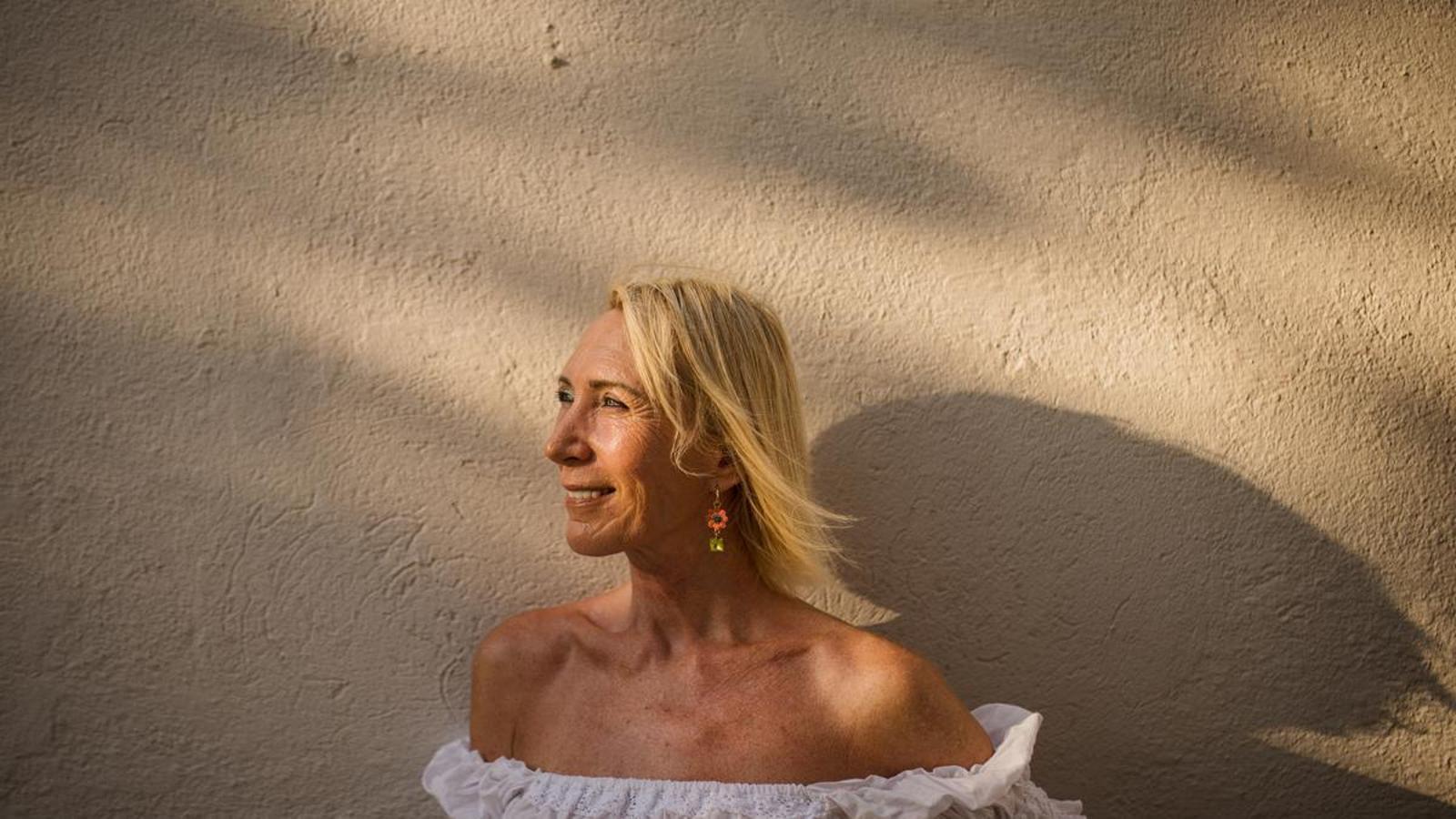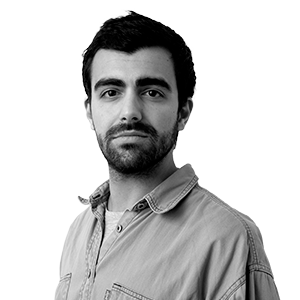Surviving four tumors before 50: "Every year I try to climb 3,000m with my friends."
Patients receiving immunotherapy emphasize that the treatment is less aggressive than other cancer alternatives.


BarcelonaThe first thing Carla Borrell thought about when she was diagnosed with cancer was her family. She says that, along with friends and doctors, they were the driving force that kept her from giving up when she was told she had a lung tumor, one of those with the worst prognosis. Her only option was to undergo surgery to have half of her severely damaged right lung removed. The operation left her devastated, requiring more than 120 stitches and nearly a month of hospitalization to drain all the fluid accumulated in her respiratory system, but the tumor disappeared and initial checkups showed a favorable outcome. However, as the weeks passed, they detected metastases in her head, and she had to undergo further surgery.
"They took a tennis ball from me," Carla jokingly recalls, explaining that this optimism and spirit have accompanied her throughout the process and have been key to her recovery. She also remained optimistic when she was diagnosed with a second and third metastasis, both also in her head, during the numerous check-ups she underwent after the second operation. She treated the last two tumors with chemotherapy and radiotherapy, and again everything went well. This time, however, the oncologists at Vall d'Hebron Hospital suggested immunotherapy to try to slow the cancer's progression, as traditional treatments weren't enough and she was experiencing relapses.
Faced with the risk of further life-threatening metastasis, Carla opted for the treatment offered to her, which involves training her immune system to attack cancer cells and thus prevent their spread. She received the drug for two years, between 2020 and 2022, and so far, the cancer has not returned. At 54, she maintains a vital attitude and a desire to do things, especially sports, which is one of her great passions, almost always with friends, whom she considers "vitamin people." "Because my lung was affected, I thought I'd never be able to run again, and now every time I finish a race, I send a photo to my oncologist. Every year I try to climb a 3,000-meter stretch with my friends," she explains proudly.
She's been disease-free for five years now thanks to immunotherapy, so she doesn't hesitate to recommend it to all patients in a similar situation who might be eligible for a drug like this. "It's changed my life; I recommend it without hesitation," says Carla, who explains that during the two years of treatment she had virtually no side effects, while she did with chemotherapy and radiotherapy. "I had very mild skin damage, but nothing like the effects of chemotherapy, which took away my appetite, made me tired, made me dizzy, and made me buy wigs because of my hair loss," she recalls. Immunotherapy, she says, has been fundamental to her recovery, as has the unconditional support of her loved ones and the professionals who have been with her.
Becoming a father thanks to a new treatment
When José Perales was diagnosed with colon cancer, he was "more dead than alive." At just 33 years old, it had metastasized to different parts of his body, the tumor was at the most advanced stage possible, and doctors gave him no hope; the prognosis was very poor. He underwent 14 chemotherapy sessions that left him very weak (he lost more than 20 kilos), and he didn't want to take photographs or look in the mirror because he didn't recognize himself. They told him that surgery was not possible, that the procedure was too complex, but he sought a second opinion at Vall d'Hebron—the flagship of the Catalan healthcare system—and there they did give him reassurances, and told him he could undergo surgery.
The surgeons removed half of his colon and pancreas, the duodenum, and more than 70 lymph nodes in the back of his abdomen. "They've rebuilt my digestive system from top to bottom," the patient says three years later. After surgery, he was included in a clinical trial evaluating an experimental immunotherapy, and contrary to the poor prognosis he initially had due to his young age, he has been able to rebuild his life. In fact, it's been a year since he became the father of Vega, a dream he thought he'd never be able to fulfill. "She's my light, a person I had assumed would never arrive," he explains emotionally.
He says that, compared to chemotherapy, the immunotherapy treatment he underwent was like "drinking water"; he has had no side effects, and three years after his diagnosis, he continues to follow it to ensure he doesn't relapse. He believes his case gives "hope to many people who are in the same situation." Because before, a cancer diagnosis was practically a death sentence, while now medical advances have allowed patients like him, who had very little prospects for the future, to return to life. He has regained the weight he lost and lives "practically as before," although it's true that the surgery and chemotherapy have left him with lifelong scars. A life where she can watch her daughter grow up.
Detecting cancer early
However, this therapy is also effective in less complex cases. Mercè Freixa has been an oncology patient for a few months and explains that she hasn't felt ill at any point during the process. In February, she urinated a somewhat odd color; she thought she had a urinary tract infection and went to the doctor for an antibiotic prescription. However, in the emergency room, they ruled out an infection, and since there was a little blood and she had been a smoker, they recommended an ultrasound in case they detected any cancerous lesions. The test confirmed that she had a tumor in her urinary bladder, but, fortunately, it was located in an area with a good prognosis and wasn't too large. It was detected in time.
She underwent surgery at Bellvitge Hospital, and after verifying that the bladder walls were not affected and that there were no traces of tumor cells, she began immunotherapy treatment to prevent relapses. For a month and a half, she went to the hospital every week to receive the drug, which was applied directly to the area affected by the tumor. So far, none of the subsequent tests have found any trace of cancer. Now, in September, they plan to do three more follow-up sessions to ensure that her progress continues to be favorable, and if all goes well, they will gradually space out her visits.
During all this time, she has had virtually no side effects, just a slight headache and some dizziness. She feels very fortunate to have detected the disease early. "Unfortunately, cancer doesn't give warning, but the operation was very successful, and throughout the entire treatment, I haven't felt bad," explains Mercè, who recalls that her father was diagnosed with the same tumor, and since these drugs didn't exist, he had to undergo chemotherapy for treatment.
